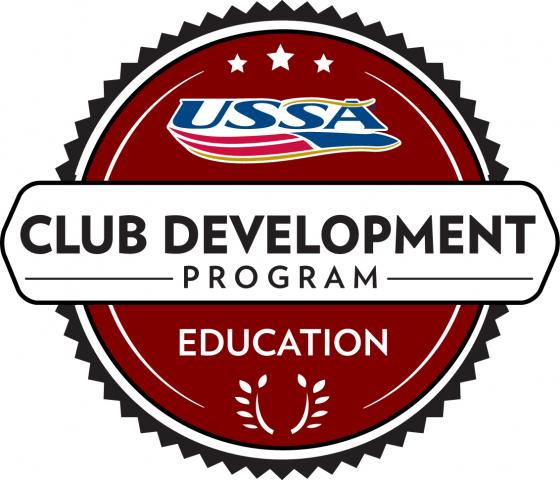
Character development must be the basic fiber of a club. Parents are making important educational, athletic and financial investments in their children when they enroll in a USSA club. As families consider the best option for their children, they are focused on far more than just a place to drop their kids off for a training session. Families expect and demand that the club provides a healthy, safe and progressive environment for the children to learn life lessons as well as skills to compete in winter sport.
Clubs should develop and commit to a character development philosophy that promotes and demands expectations like sportsmanship, values, community involvement, leadership, academics, citizenship, role modeling and professionalism in their athletes.
Lester Keller, the USSA’s National Alpine Development Director and Sport Psychology Director, who also holds a PhD in sports psychology, recently studied the motivational factors relative to the way families make decisions and commit to programs for their children. This study looked at alpine skiing as the activity, but the conclusions can be applied across all sports and activities.
The participants in this study expressed several important reasons they had for initiating sports for their children. An underlying belief that sports build character and provide an arena in which the necessary and desirable lessons of life can be learned forms a base upon which the parents constructed a platform of family dynamics that provides the environment for children to learn and adopt moral values important to the parents.
The idea that sport develops character was a centrally held characteristic of these parent’s beliefs.
-
These families held the opinion that moral values could be developed and strengthened through participation in sport. It was undisputed that sport develops good character and that lessons learned in sports would be transferred to other parts of the lives of children. The sporting arena and experiences would promote acquisition of a sound mind and strong moral character. Sportsmanship, teamwork, and work ethic were all pro-social values that the parents wanted children to develop while playing sports. These parents believed that sports build strong moral character and that through sport their children would develop into superior people and good citizens, able to make contributions to society.
-
Characteristics such as following dreams, developing passions, personal accountability and commitment to goals, self-discipline and courage were both potential and realized results these parents perceived to have been acquired by their
children during sport careers or as potentially being acquired. This was a strong motivation to place children in sport and to support their every effort.
-
These parents held no doubts that sport mirrored life and that the learning experiences possible in sports were both numerous and comprehensive. Life’s lessons, both positive and negative, are necessary experiences that these parents felt would be learned in a career of sport participation. In the study, alpine skiing was seen as particularly salient for teaching life skills. It is seen as a difficult sport, high in demands and challenge. Tough lessons as well as positive experiences were viewed as likely. Winter environments, high organizational demand, difficulties in achieving advancement, lack of recognition and social reward were all cited as prevalent in ski racing and as high in potential of teaching the lesson that life can be difficult.
-
Doing your best, giving 100% effort in the striving for goal achievement, the ability to set goals and taking on the personal responsibility for success or failure were viewed as life skills that were promoted by sport pursuits. Striving for excellence and learning to deal with the resulting success as well as having to experience loss and losing were also experiences the parents expressed as desirable.
-
Sport and ski racing were also seen as an alternative to poor life choices. The avoidance of trouble in general and drugs specifically was expressed as a learning opportunity. The parents wanted their children associated with the right kids. Athletes were viewed as desirable peer candidates.
For assistance contact: education@ussa.org


